Disposable vapes to be banned using devolved powers
- Published
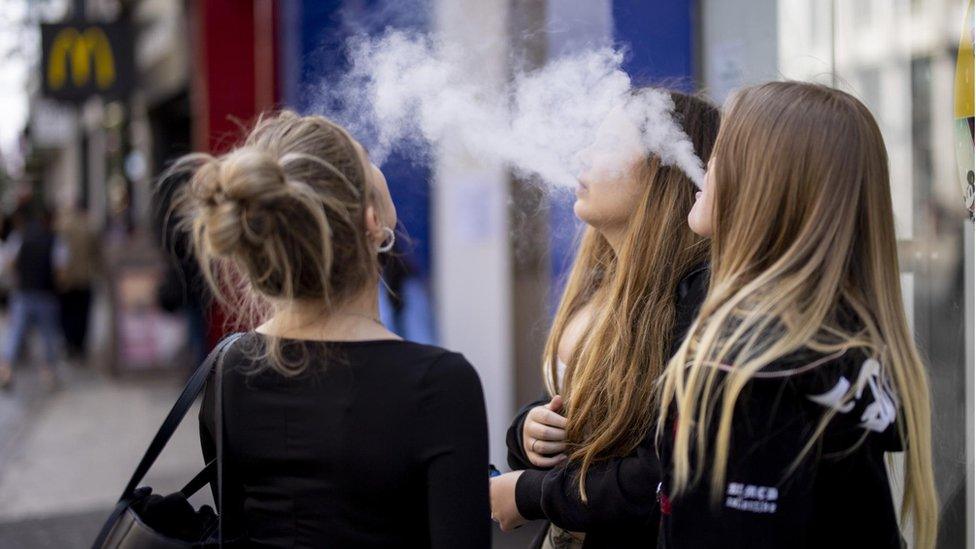
Disposable vapes are the most popular vaping device among teenagers in Scotland
Powers devolved to the Scottish parliament will be used to implement a ban on disposable vapes.
The Scottish government has backed the recommendations of a four-nations consultation on vaping and smoking in young people.
Measures will include restrictions on vape flavours and promotion, as well as changing age limits for buying tobacco.
Most will be enacted by legislation at Westminster but the ban on single-use vapes requires a separate Scottish law.
In a bid to stop smoking, changes on tobacco sales laws will mean that no-one born on, or after, 1 January 2009 can ever legally be sold tobacco in Scotland.
Consultation on a new report aiming to create a smoke-free generation and tackle youth vaping ran across Scotland, England, Wales and Northern Ireland last year.
Smoking is responsible for more than 8,000 deaths a year in Scotland, and vapes are seen by many health professionals as a useful tool for helping adults quit.
But there has been mounting concern about the rapid rise of vaping among children, many of whom might never consider smoking.
Refillable, reusable vapes will remain available alongside other tools for smoking cessation, including nicotine patches and medication.
The laws will introduce new powers for local authorities to issue fixed penalty notices for those who breach the age of sale legislation for both tobacco products and vapes.
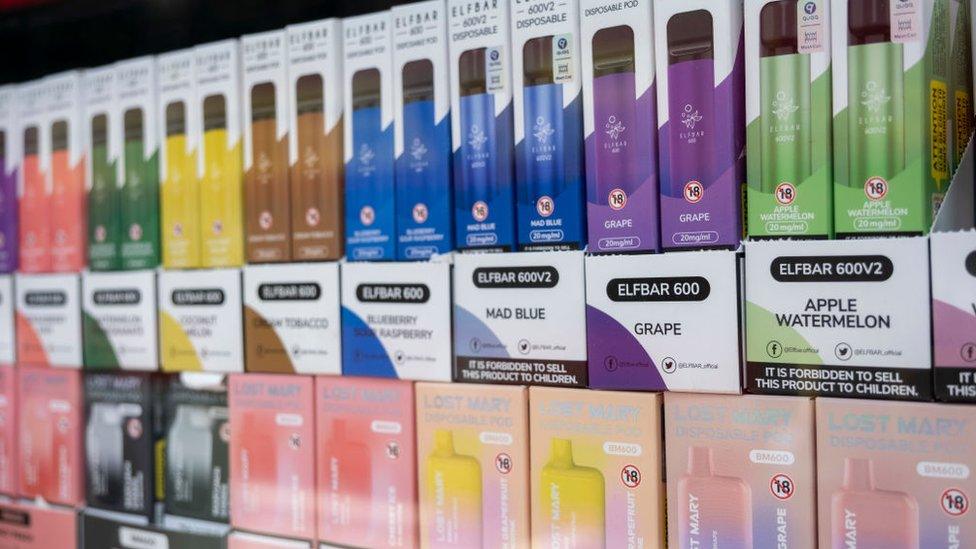
Young people predominantly use disposable vapes which are easily concealable and brightly coloured
And after concerns were raised around vape marketing methods targeting young people, the new rules will restrict vape flavours, how vapes are displayed in stores, their packaging and product presentation.
In June a Scottish government report, external found that 22% of all under-18s - around 78,000 - are believed to have used a vape last year with more young people using them than smoking cigarettes.
A review by Zero Waste Scotland estimated that up to 26 million single-use vapes were consumed and thrown away in Scotland last year.
It said around 10% were littered and more than half were disposed of incorrectly.
If vapes are incorrectly disposed of, their batteries increase the risk of fires at waste centres and on collection vehicles.
Circular Economy Minister Lorna Slater told the BBC's Good Morning Scotland programme the move would be "a more effective way" of preventing children starting to vape.
She said: "A large percentage of children in Scotland have tried vaping, and even vaped regularly. It must be terrifying for the parents to see their children becoming the next generation of nicotine addicts."
She added that the Scottish government wants "to protect young people's health so they can live long and happy lives" and that the measures will help the environment as well.
Vapes 'marketed with crisps and drinks'
Ciara MacLaverty, a mum of two in Glasgow, told the BBC's Mornings programme that her two teenage children didn't use vapes, but that the marketing of them was hard to avoid.
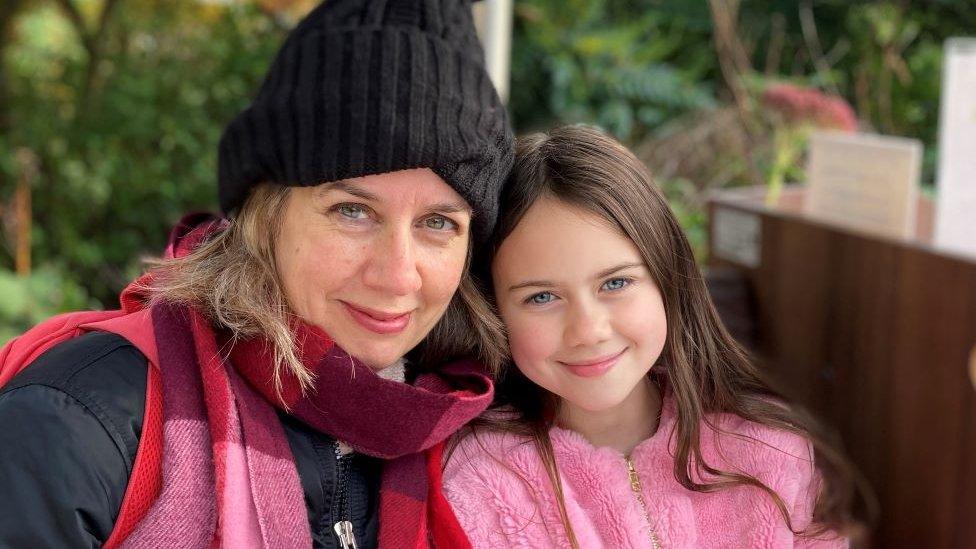
Ciara MacLaverty is concerned about the impact of advertising vaping on her daughter
She said: "We've got a local shop right beside our school. There is a big digital screen facing onto the street advertising crisps, drinks and rainbow vapes, as if when you're going to the local shop you get your crisps, your drinks and your vapes.
"Marketing it as a lifestyle product is so harmful."
Teenagers with the Dunfermline youth group Sugarcoat are currently working on a documentary about the prevalence of vaping among teenagers.
Teenage documentary makers on the impact of vapes in schools
They told the BBC that many of their classmates already vape regularly and that it felt like a "more accepted" form of smoking among pupils.
Grace, 16, said: "Lots of people go in groups, say they need the toilet and meet up there [to vape]. There's been issues with that."
Vaping 'black market'
Sheila Duffy, the chief executive of the smoking prevention charity Ash Scotland, told the BBC that disposable vapes being marketed to young people had shown a clear impact.
She said: "We have seen a doubling in the number of 12-year-olds regularly using them, and a trebling in the number of 15-year-olds. That kind of massive rise isn't reflected among older adults."
Simon Clark, the director of smokers rights group FOREST, claimed that the move would create a "huge black market" for vaping.
He told Good Morning Scotland: "The issue of vaping has to be addressed by clamping down on anyone who is selling these e-cigarettes to children and that's where the focus should be."
Mr Clark added that disposable vapes had been a "huge free market success story" as it helped smokers quit using cigarettes in favour of vapes.
Most of the measures will be legislated for on a Britain-wide basis, with preparations for Northern Ireland to follow. Laws passed at Westminster will require a legislative consent motion so they apply in Scotland.
The ban on single use vapes, however, will be taken forward under devolved environmental powers.
This will require separate legislation at Holyrood in a similar approach used to ban plastic stemmed cotton buds and microbeads.
During a visit to a school on Monday, Prime Minister Rishi Sunak said there had been a "worrying rise" in children vaping.
He stated: "Children shouldn't be vaping, we don't want them to get addicted, we still don't understand the full long-term health impacts of vaping. So it is right we take strong action to stamp this out."
- Published29 January 2024
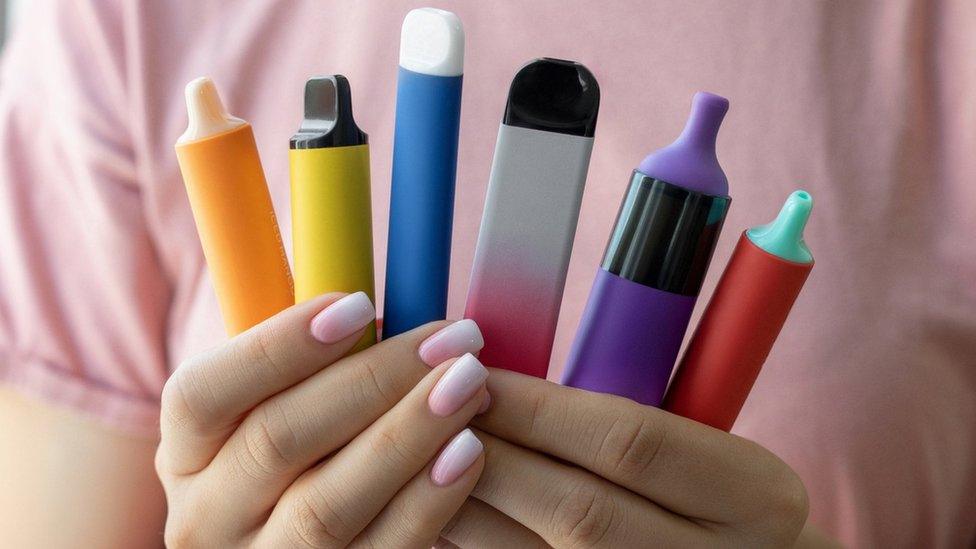
- Published22 November 2023
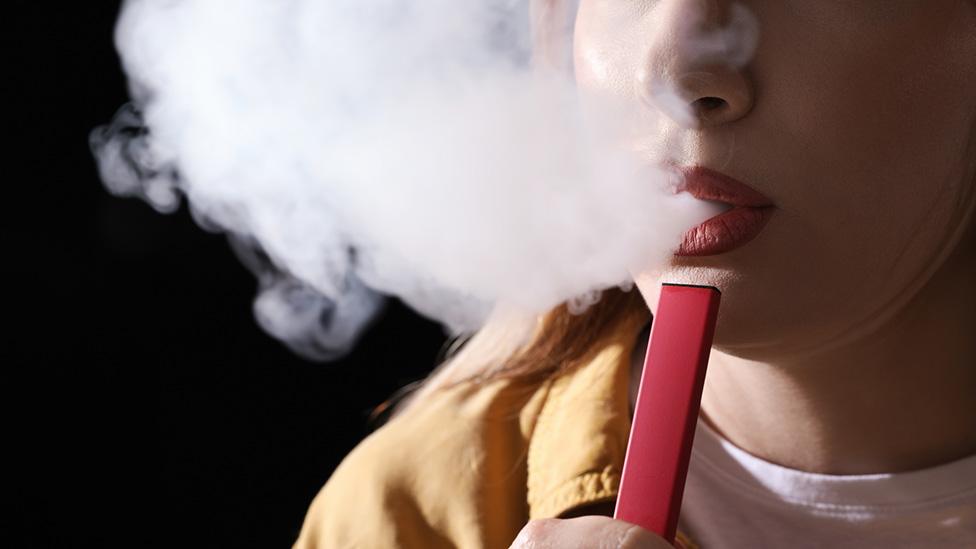
- Published14 November 2023
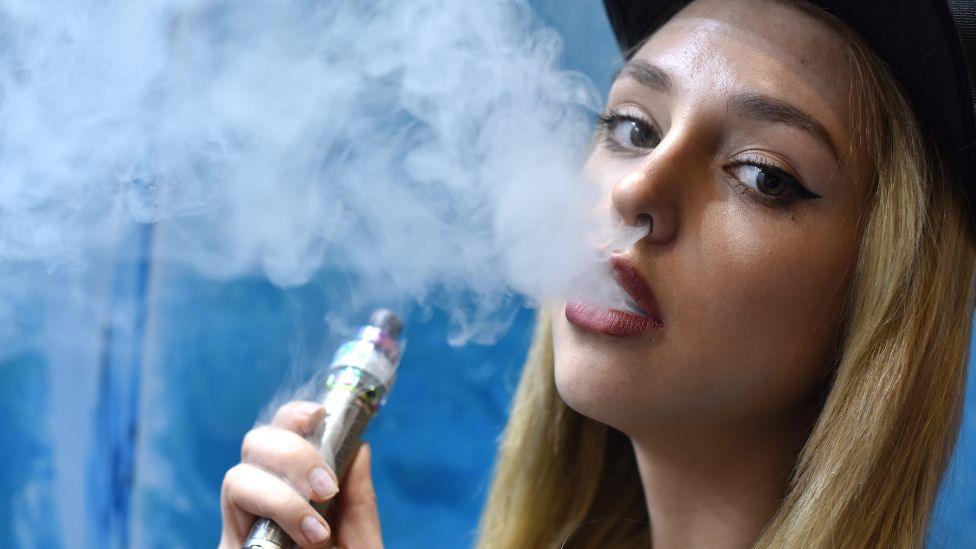
- Published5 September 2023
